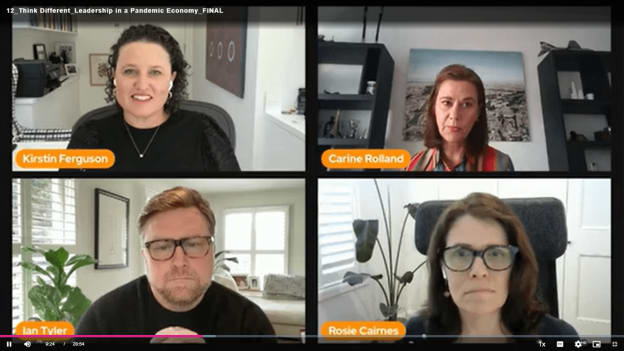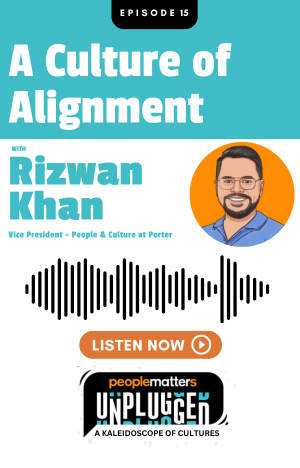Leadership in a pandemic economy: What needs to change?

The coronavirus crisis and its aftermath have been driving the economy and the corporate world with so many complexities. While the world continues to grapple with the impact of the pandemic, businesses have been battling economic uncertainties for the last 18 months. Near-term survival has become the only agenda for some companies and for few it is about how to position the fog of uncertainty when things return to normal. In fact, leaders are still deliberating what this normal will look like?
To steer the mass of humanity through this crisis, leadership on every level has had to reinvent itself. A panel of speakers Kristin Ferguson (Award-Winning Executive Coach, Public Speaker, Company Director and Writer), Ian Tyler (Chief Strategy Officer, Talent International), Carine Rolland (People & Culture Director, Asia Pacific & Middle East Region, Manpower Group) came together at Perspectives Unleashed 2021 to discuss the emerging face of new leadership that can steer organisations through the economic downturn and has the maturity to look beyond the dark horizon. The session was moderated by Rosie Cairnes, Regional Vice President, Asia Pacific, Skillsoft.
Empathy & Compassion
Kristin aptly pointed out the need for ‘high EQ’ with higher empathy and compassion as an absolute necessary skill that leaders need to believe and follow. In a complex and unpredictable situation like the current one, leadership must be adaptive at all levels. She stated ‘we really need to understand which of our team members are in which boats’, as she has been seeing many people struggling to survive amidst layoffs and on other hand few are ‘sailing around’ during the pandemic in a yacht. Strong empathic responses are important at times when many people’s lives are disrupted and families have lost loved ones. Time to make leadership more humanized.
Inclusiveness
Ian Tyler believes that it’s alright to accept the amount of fatigue the pandemic has brought in and leaders are experiencing the same pressure from all perspectives. However, a feeling of inclusiveness needs to be re-installed. Building on inclusivity and culture, Carine shared an insightful project that was launched a year ago to bring in changes in employee behaviour, called ‘culture matters’ - an initiative that began with a survey and its analysis to bring in changes in some key behaviours like courageous risk taking, collaboration and anti-slow for every employee.
Tech Adoption
Even during the pandemic few companies have grown from 50 people to 200 people with wider international expansion by adopting new technologies and digital first approach. Hybrid strategy is being tested positively to grow business and few companies are following this norm for quite some time now states Ian. Companies like Slack, Atlassian, Deutsche Bank and Microsoft are learning, evolving and doing things differently, setting new norms of work culture.
Changing norms of doing work
Carine stated that it's interesting to see that during this pandemic ‘we've seen more innovation and creativity’ in terms of managing people, policies and processes. The new model is more about an organisation that communicates frequently to instil more trust among leaders and the workforce. The greater the communication and coordination, the more resilient the system is in the face of adversity. Trust, communication, clarity, transparency and consent have become vital forces of the legacy of the pandemic.
To summarise, the perceptions and sentiments of leadership have somewhat changed during the pandemic. Leaders now have a better sense of what can, and cannot be done outside their companies’ traditional processes and the consequences are quite profound as experienced during the pandemic. At the same time, it’s imperative to bring humanity back to the corporate world with authentic and fully accessible leaders who make themselves more visible and available to a larger population. Leaders need to be flexible in their leadership style in order to sail through the rapidly changing needs of a pandemic era.













